Extract of a letter from Trooper John Byers Fisher to his parents received a few days after his death
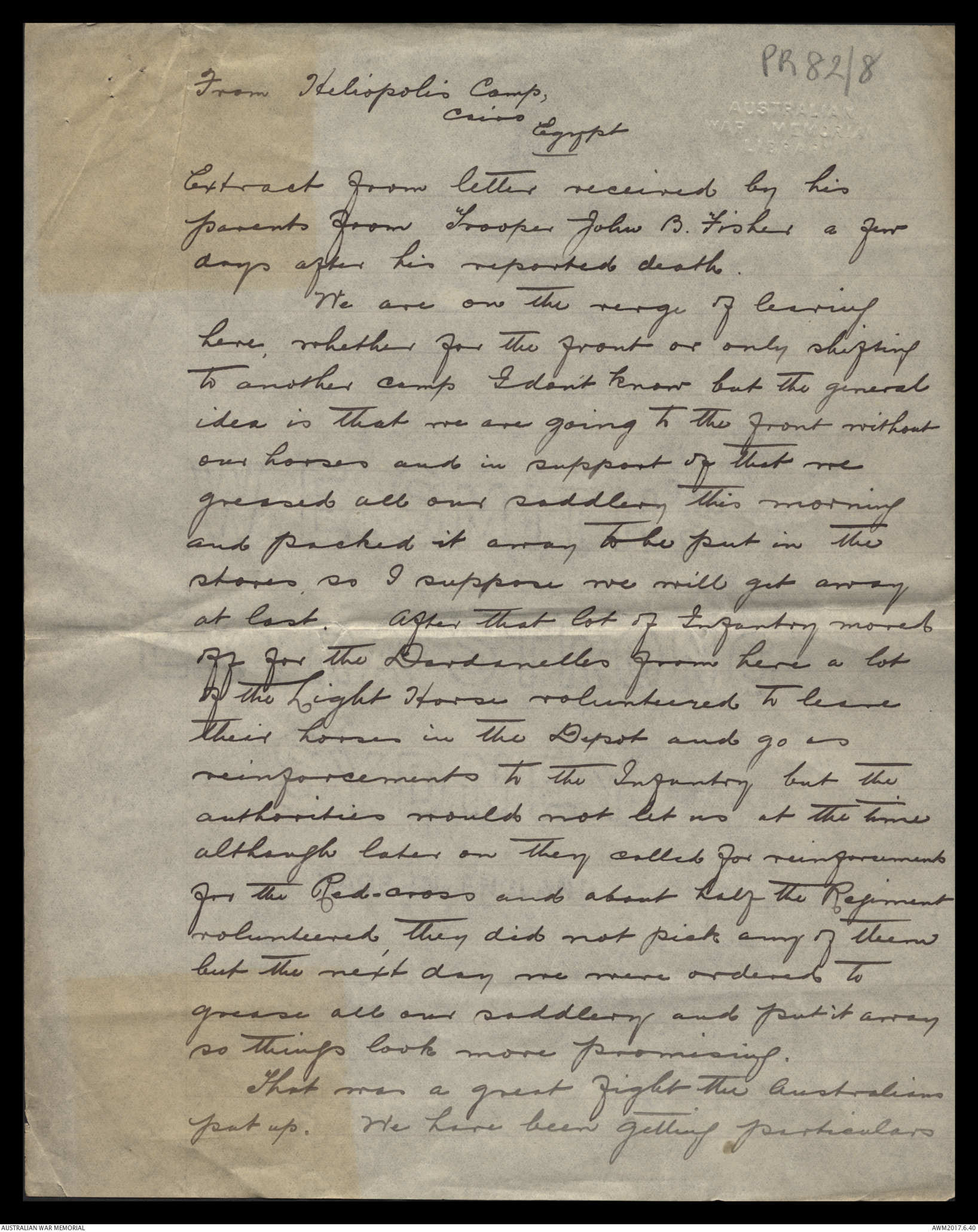
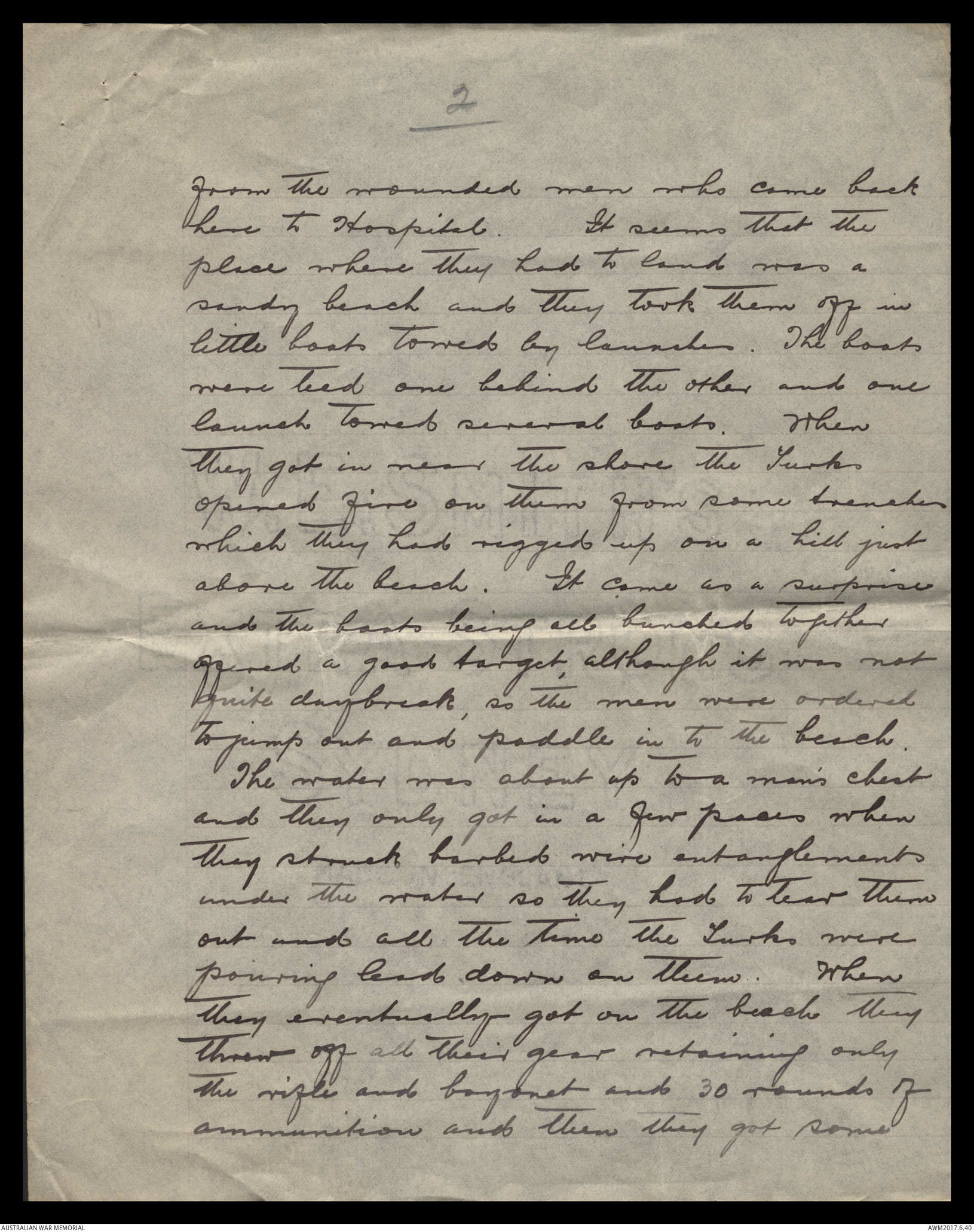
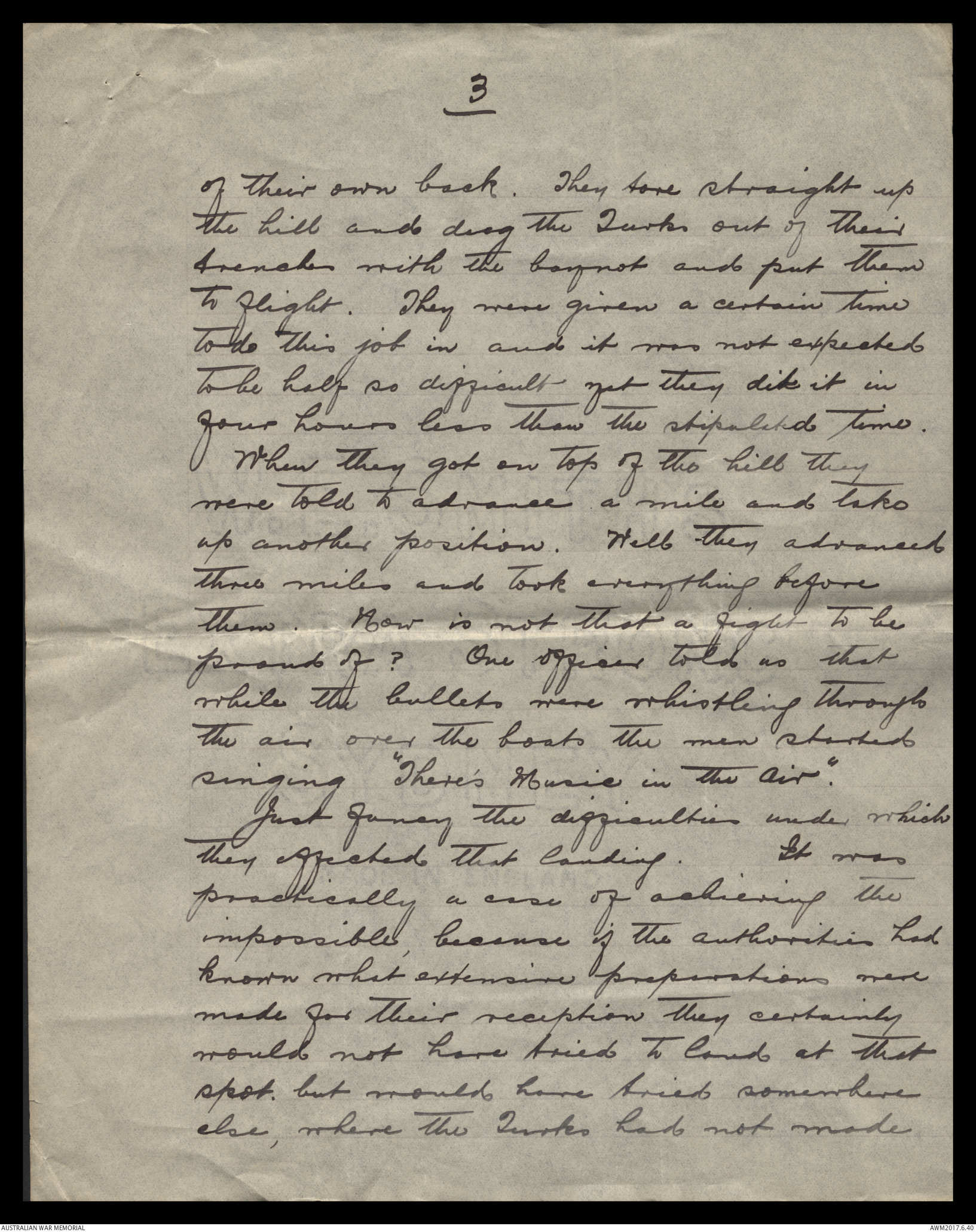
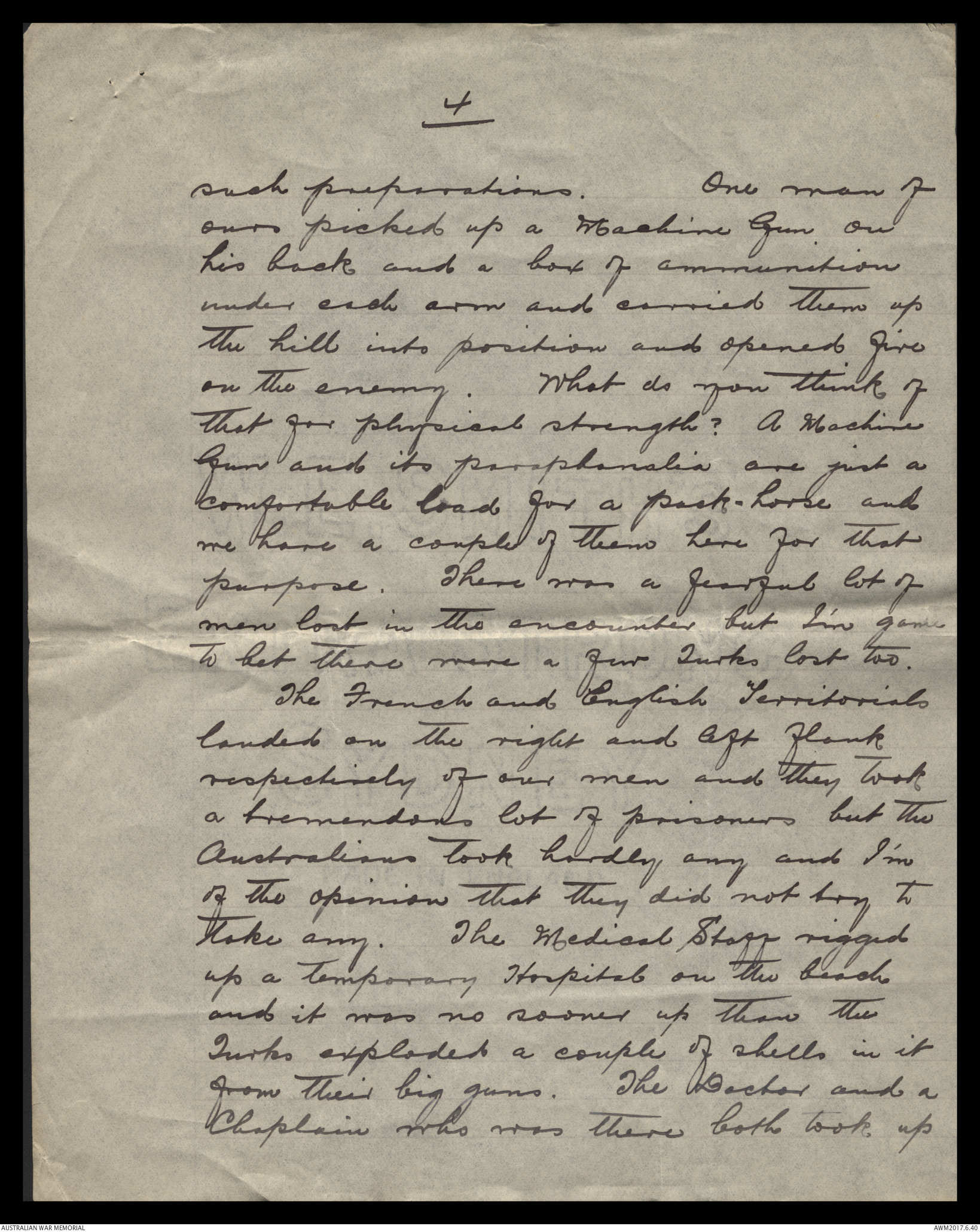
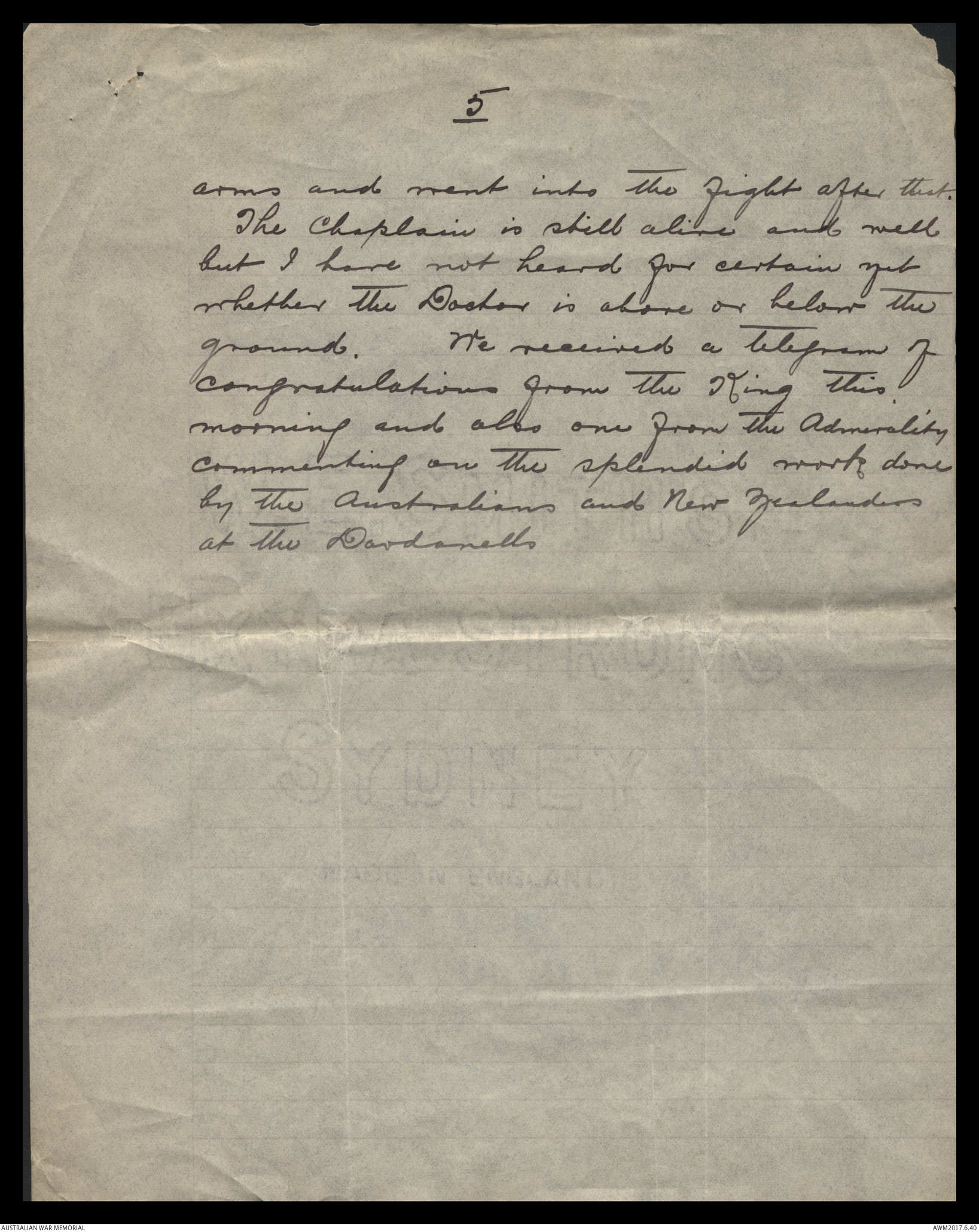
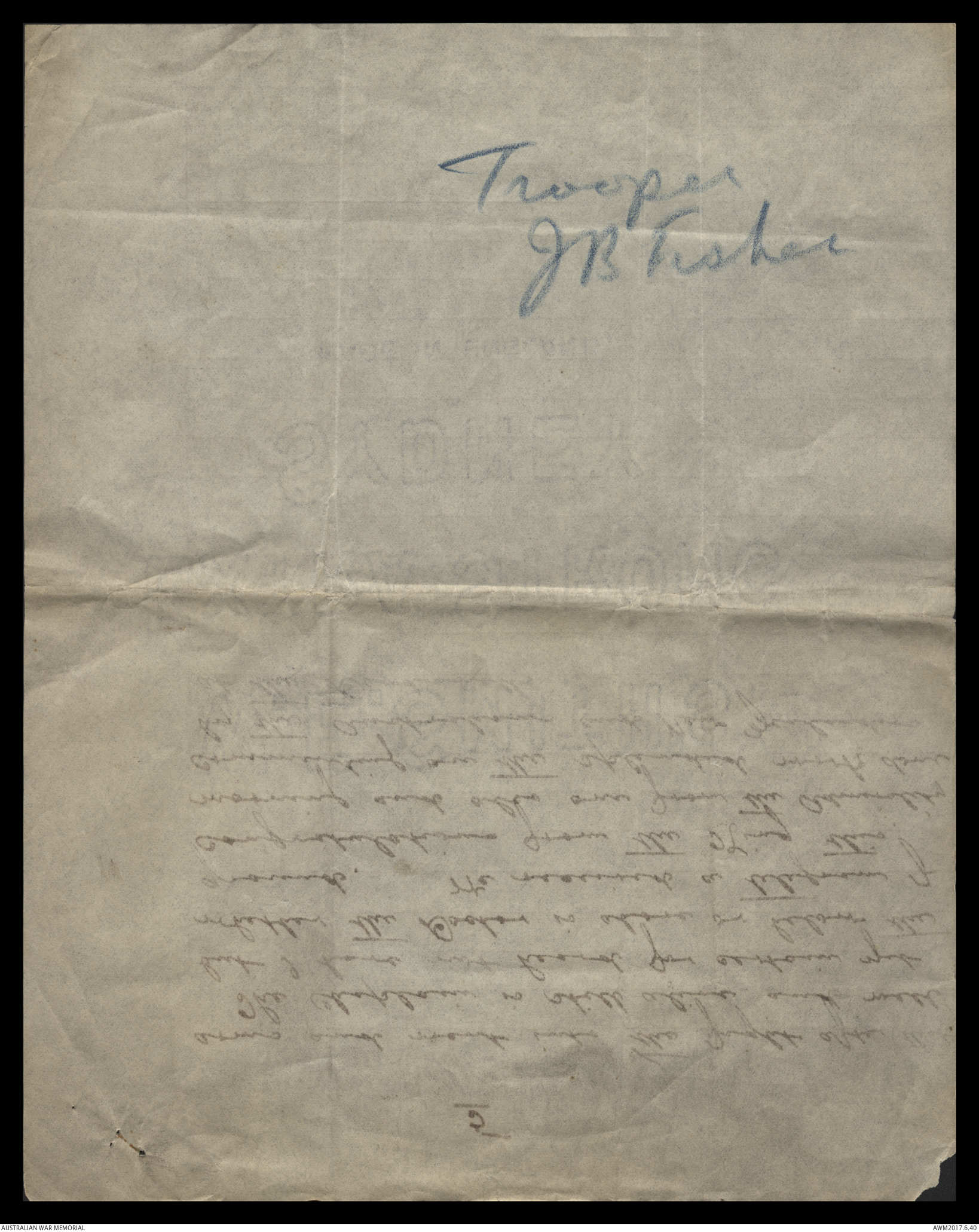
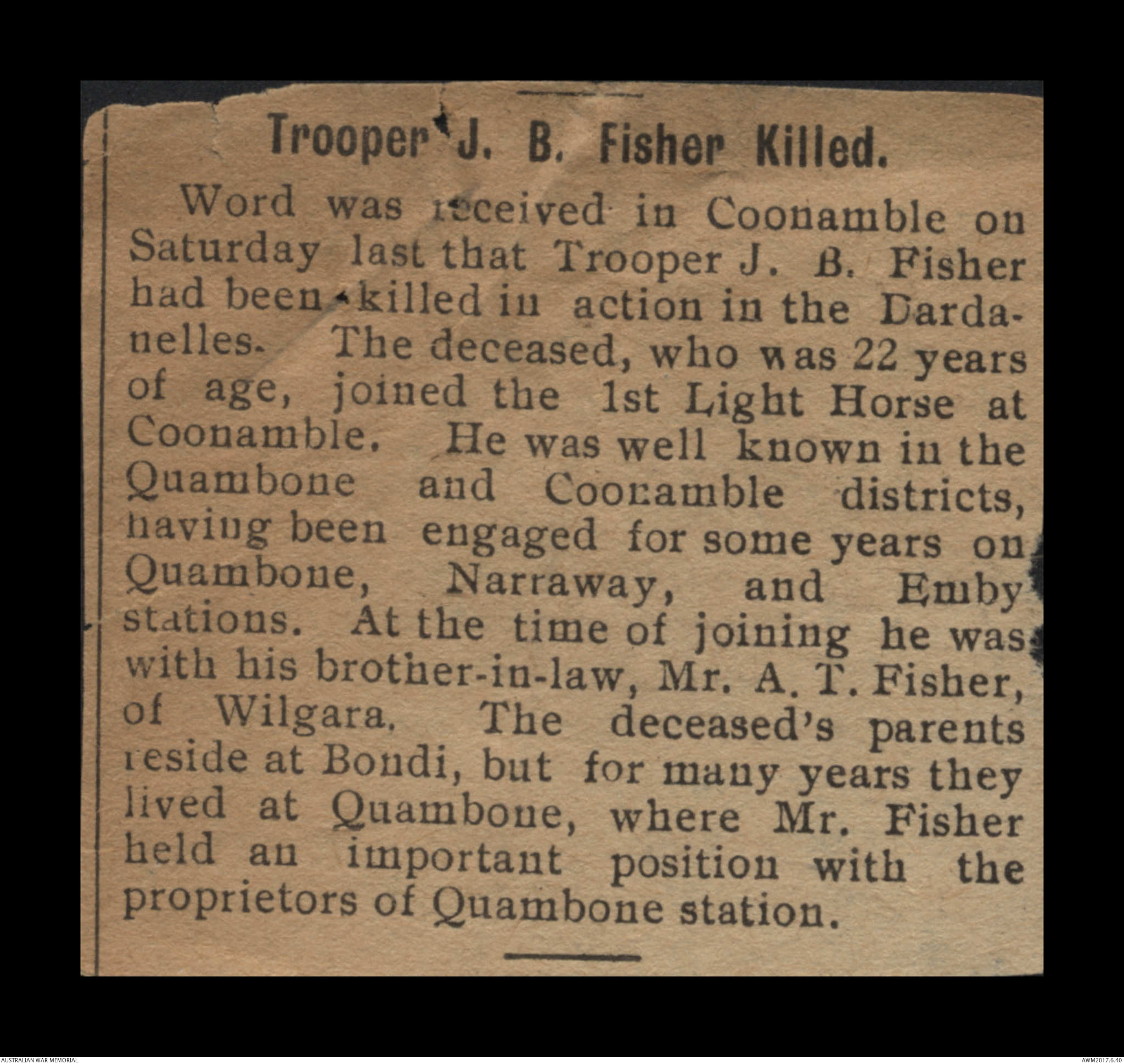
PR82/8
From Heliopolis Camp,
Cairo
Egypt
Extract from letter received by his
parents from Trooper John B. Fisher a few
days after his reported death.
We are on the verge of leaving
here, whether for the front or only shifting
to another camp I don't know but the general
idea is that we are going to the front without
our horses and in support of that we
greased all our saddlery this morning
and packed it away to be put in the
stores, so I suppose we will get away
at last. After that lot of Infantry moved
off for the Dardanelles from here a lot
of the Light Horse volunteered to leave
their horses in the Depot and go as
reinforcements to the Infantry but the
authorities would not let us at the time
although later on they called for reinforcements
for the Red-cross and about half the Regiment
volunteered, they did not pick any of them
but the next day we were ordered to
grease all our saddlery and put it away
so things look more promising.
That was a great fight the Australians
put up. We have been getting particulars
2
from the wounded men who came back
here to Hospital. It seems that the
place where they had to land was a
sandy beach and they took them off in
little boats towed by launches. The boats
were tied one behind the other and one
launch towed several boats. When
they got in near the shore the Turks
opened fire on them from some trenches
which they had rigged up on a hill just
above the beach. It came as a surprise
and the boats being all bunched together
offered a good target, although it was not
quite daybreak, so the men were ordered
to jump out and paddle in to the beach.
The water was about up to a man's chest
and they only got in a few paces when
they struck barbed wire entanglements
under the water so they had to tear them
out and all the time the Turks were
pouring lead down on them. When
they eventually got on the beach they
threw off all their gear retaining only
the rifle and bayonet and 30 rounds of
ammunition and then they got some
3
of their own back. They tore straight up
the hill and dug the Turks out of their
trenches with the baynot and put them
to flight. They were given a certain time
to do this job in and it was not expected
to be half so difficult yet they did it in
four hours less than the stipulated time.
When they go on top of the hill they
were told to advance a mile and take
up another position. Well they advanced
three miles and took everything before
them. Now is not that a fight to be
proud of? One officer told us that
while the bullets were whistling through
the air over the boats the men started
singing "There's Music in the Air".
Just fancy the difficulties under which
they effected that landing. It was
practically a case of achieving the
impossible, because if the authorities had
known what extensive preparations were
made for their reception they certainly
would not have tried to land at that
spot. but would have tried somewhere
else, where the Turks had not made
4
such preparations. One man of
ours picked up a Machine Gun on
his back and a box of ammunition
under each arm and carried them up
the hill into position and opened fire
on the enemy. What do you think of
that for physical strength? A Machine
Gun and its paraphanalia are just a
comfortable load for a pack-horse and
we have a couple of them here for that
purpose. There was a fearful lot of
men lost in the encounter but I'm game
to bet there were a few Turks lost too.
The French and English Territorials
landed on the right and left flank
respectively of our men and they took
a tremendous lot of prisoners but the
Australians took hardly any and I'm
of the opinion that they did not try to
take any. The Medical Staff rigged
up a temporary Hospital on the beach
and it was no sooner up than the
Turks exploded a couple of shells in it
from their big guns. The Doctor and a
Chaplain who was there both took up
5
arms and went into the fight after that.
The Chaplain is still alive and well
but I have not heard for certain yet
whether the Doctor is above or below the
ground. We received a telegram of
congratulations from the King this
morning and also one from the Admirality
commenting on the splendid work done
by the Australian and New Zealanders
at the Dardanells
Trooper
JB Fisher
Trooper J. B. Fisher Killed.
Word was received in Coonamble on
Saturday last that Trooper J. B. Fisher
had been killed in action in the Dardanelles.
The deceased, who was 22 years
of age, joined the 1st Light Horse at
Coonamble. He was well known in the
Quambone and Coonamble districts,
having been engaged for some years on
Quambone, Narraway, and Emby
stations. At the time of joining he was
with his brother-in-law, Mr. A. T. Fisher,
of Wilgara. The deceased's parents
reside at Bondi, but for many years they
lived at Quambone, where Mr. Fisher
held an important position with the
proprietors of Quambone station.
 Kimberley Hayes
Kimberley Hayes This transcription item is now locked to you for editing. To release the lock either Save your changes or Cancel.
This lock will be automatically released after 60 minutes of inactivity.